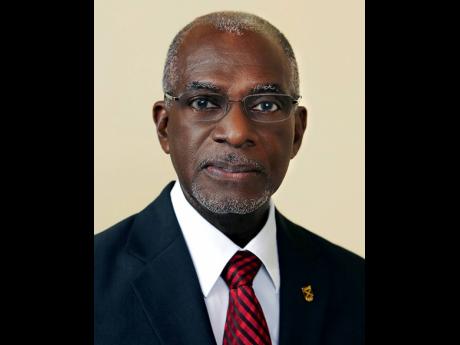Confidence dips, but spending plans rise
CONSUMERS AND companies are planning to spend more within a less confident economy, according to the latest Confidence Indices for the March 2023 first quarter.
“The indices moved in the same direction and almost by the same extent downwards when compared with December quarter 2022,” said pollster Don Anderson, executive chairman of Market Research Services Limited, at an online press conference on Tuesday, while releasing the Jamaica Chamber of Commerce, JCC, Business & Consumer Indices.
Consumer confidence dipped to 161 points in the first quarter, down 2.7 percentage points over the December 2022 fourth quarter. Business confidence dipped to 137 points in the first quarter, down by 5.4 percentage points over the review period.
Looking at consumer expectations, more than half of the over 600 respondents, or 52.8 per cent, expect the economy to worsen in the next 12 months. They point to the “particularly” high cost of living, the high crime rate, ineffective governance, lack of employment, and the ongoing brain drain, said Anderson.
As context, the previous survey noted that 42.2 per cent of respondents thought the economy would worsen.
Anderson added that consumers were also less optimistic about the prospects of new jobs going forward. Despite this, more persons expect their household income to rise.
“Are they optimistic or hopeful?” Anderson said. “We are not sure.”
Consumers also have stronger intentions to buy homes, vehicles, and to take a vacation. Anderson viewed the rise as a need to escape the lingering stress of the pandemic, three years and counting.
“People are now feeling the need to escape from the boundaries placed on them during COVID-19, to take a vacation and travel somewhere along the line,” he said.
Over five years, the trend of consumer confidence remained flat at 161 points in the March quarter 2023, from the average 160 points over the four quarters of 2022, 140 points in 2021, 150.1 points in 2020, and the record 180.2 points in 2019.
Turning to business confidence, more than half of the 100 businesses surveyed expect to invest in the short to medium term, or 56 per cent, compared to 47 per cent in the previous quarter.
Over five years, the trend of business confidence showed a recovery from the pandemic lows, but still somewhat away from the 2019 highs of 143.6 points. It slumped to 120.5 points in 2020 and 124.9 points in 2021, and climbed further to 137 points in 2022.
Despite the fall-off in confidence, businesses across a number of sectors have increased plans to invest, said Anderson. The exception relates to the construction sector, which already benefited as a flight to safety during the onset of the pandemic.
The indices, since 2001, track the quarterly fluctuations in consumer and business sentiment on the island. The fieldwork for the June quarter is currently under way. Anderson conducts the research on behalf of the JCC.
Following Anderson’s presentation, the JCC held a panel discussion that canvassed the views of business heads. The head of the Government’s marketing arm, Jampro, said that investments were returning.
“Over the last year, investment decisions have stabilised. When COVID-19 started, we saw a number of investments get placed on hold or cancelled. But for the last year, we have seen where projects that had started in the late stages of 2021 are progressing and moving forward,” said Jampro President Shullette Cox, adding that renewable energy projects and film-making were areas of increased interest.
Food delivery company 7Krave noted that consumer spending power has shrunk, but that they have invested in adding grocery delivery to augment revenue.
“I am concerned about how inflation will look in the short term,” said Rory White, CEO of 7Krave. “If you give people money they will spend, and buy homes and vehicles and go on vacations. But people are not getting enough.”
On the business side, White added: “We are expanding into wholesale and retail. We have recently expanded to do home delivery with 7Krave Mart. We no longer just offer delivery from restaurants, but now also delivery from your favourite supermarkets.”
For Fesco, the gasolene marketing company, its customer base continues to grow. On the business side, however, the cost of financing has become more expensive due to interest rate hikes. Added to that, companies like Fesco make capital investment plans “years in advance”.
“It forces companies to earn more, because the cheapest source of financing would be from retained earnings and also from making profits,” said Jeremy Barnes, CEO of Fesco, on interest rates.
In the last 24 months, Fesco spent $4 billion in capital expenditure, he said, adding that it will continue to invest in its operations going forward.

